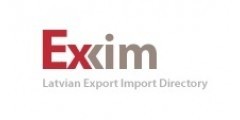Selected categories:
- Business activities
Business activities
Did you know that:
Running a business in Poland involves a series of formal requirements as well as the opportunity to choose from various legal and tax structures. Poland is one of the largest markets in Central and Eastern Europe, offering diverse opportunities for entrepreneurs. Several sectors are growing dynamically, including technology, manufacturing, services, and trade.
Forms of Business Activity
In Poland, entrepreneurs can choose from different legal forms of business operations. The most commonly chosen forms are sole proprietorship, limited liability company (sp. z o.o.), joint-stock company (S.A.), as well as partnerships such as general partnerships, limited partnerships, and limited joint-stock partnerships. The choice of the business form depends on various factors, including the size of the company, its structure, and planned business scale.
Business Registration
To start a business in Poland, entrepreneurs must register with the appropriate authorities. Sole proprietors and civil partnerships register with the Central Register and Information on Economic Activity (CEIDG), while commercial companies are registered with the National Court Register (KRS). Entrepreneurs must also obtain a tax identification number (NIP), a REGON number, and register for VAT if they meet certain criteria.
Tax and Accounting Obligations
In Poland, entrepreneurs are required to comply with tax regulations, including income tax, VAT, and other mandatory contributions, such as social security payments to the Social Insurance Institution (ZUS). Depending on the form of business, entrepreneurs can choose between full accounting or simplified tax reporting methods, such as lump-sum taxation or flat-rate tax. It is worth noting that Poland has introduced a number of measures to facilitate tax reporting, such as the e-Delegation system or the JPK (Uniform Control File), designed to simplify audits and ensure greater transparency.
Support for Entrepreneurs
Poland offers numerous support programs for entrepreneurs, especially for small and medium-sized businesses. These include EU grants, tax incentives, funding programs for innovation, and investment projects. Additionally, many Polish cities have business incubators, technology transfer centers, and startup-support organizations that provide advisory services, financing, and help with business development.
Employment Regulations
Entrepreneurs who employ workers must comply with labor laws, including establishing employment contracts, paying wages, adhering to occupational health and safety regulations, and providing appropriate working conditions. Moreover, employers are required to contribute to social and health insurance on behalf of their employees.
Conclusion
Running a business in Poland is a process that requires knowledge of legal regulations as well as a systematic approach to tax and accounting obligations. Despite the bureaucratic formalities, Poland offers an attractive market for entrepreneurs, with both domestic and European growth opportunities. With a wide range of support from public and private institutions, entrepreneurs have access to tools that can facilitate business development and operations in Poland.

 pl
pl  en
en  de
de  es
es  fr
fr  it
it  pt
pt  ru
ru  sv
sv 




























